freedom for the people on the roof of the world
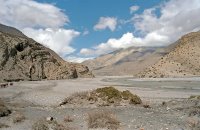 Can I just say that I support fully the Nepalese call for democracy. There is no reason for a monarchy in the 21st century, not even in the mountains of the Himalaya. While not all of the groups which are supporting protests against the king are full supporters of democracy, the ability to protest your government and not be shot on site by government officials is what underpins freedom.
Can I just say that I support fully the Nepalese call for democracy. There is no reason for a monarchy in the 21st century, not even in the mountains of the Himalaya. While not all of the groups which are supporting protests against the king are full supporters of democracy, the ability to protest your government and not be shot on site by government officials is what underpins freedom. "These are not protests any more. This is a revolution," said Harish Dhal, a demonstrator. "We don't want a monarchy. We want real democracy."Even the police are beginning to see the limits of such draconian measures and the West is starting to get it.
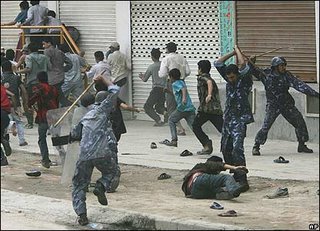 Gyanendra is a tyrant, having seized absolute power last year when his nephew Dipendra purportedly staged a murder suicide, killing most of the family, including King Birendra (Dipendra's father, and Gyanendra's brother), Gyanendra became king but the killings by the late crown prince Dipendra has remained a controversy. The entire royal family was together on Friday night, and there was an argument between Dipendra and Queen Aiswarya (his mother) over Dipendra's choice of bride. Dipendra wanted to marry Devyani, but because of her family lineage, her mother did not accept a marriage between the two. It was rumored that King Birendra (Dipendra's father) threatened to take away Dipendra's right to heir if he married Devyani. Devyani has since gone into hiding in India.
Gyanendra is a tyrant, having seized absolute power last year when his nephew Dipendra purportedly staged a murder suicide, killing most of the family, including King Birendra (Dipendra's father, and Gyanendra's brother), Gyanendra became king but the killings by the late crown prince Dipendra has remained a controversy. The entire royal family was together on Friday night, and there was an argument between Dipendra and Queen Aiswarya (his mother) over Dipendra's choice of bride. Dipendra wanted to marry Devyani, but because of her family lineage, her mother did not accept a marriage between the two. It was rumored that King Birendra (Dipendra's father) threatened to take away Dipendra's right to heir if he married Devyani. Devyani has since gone into hiding in India.The official investigation report says that Dipendra returned intoxicated and unable to control himself and yet it claims that within less than half an hour he fired three separate weapons (a submachine gun (MP-5), an M16, and a Glock pistol) indiscriminantly. Moreover, Dipendra was right handed and the entry wound was found on the left temple. All these issues have made people suspect that it was not Dipendra who killed the royal family but somebody else. Consider that all of the other heirs to the throne with claims superseding Gyanendra's died that night. Gyanendra, conveniently, was in the jungle of Chitwan at the time. According to the Nepali constitution, he, as a brother to the King, could only take the throne if there were no sons of the King available to take his position. Given these circumstances, some Nepalese have lost the faith they had in the monarch as an incarnation of a god.
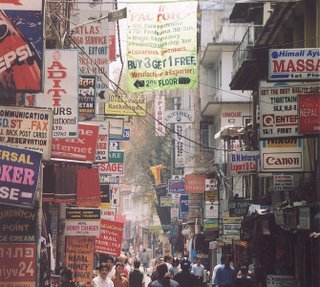 The most prominent evidence supporting a government cover-up is the fact that the government changed its story of the events. The first story, which was absolutely not accepted by the general public whatsoever, was that an automatic rifle accidentally went off on June 1st, shooting fourteen separate people, killing ten. This is ludicrous and was not a story the Nepali government could get away with.
The most prominent evidence supporting a government cover-up is the fact that the government changed its story of the events. The first story, which was absolutely not accepted by the general public whatsoever, was that an automatic rifle accidentally went off on June 1st, shooting fourteen separate people, killing ten. This is ludicrous and was not a story the Nepali government could get away with.There is evidence that leads to certain questions being raised. In Dipendra's glock pistol, there were two bullets fired from that night. Generally, when someone shoots himself in the temple they only really have the ability to shoot the gun once. There were several reports claiming that Dipendra not only drank plenty of alcohol that night, but also smoked a cigarette laced with hashish and an unknown black substance. Paradoxically, the doctor that worked on Dipendra while he was comatose claimed that there was no trace of alcohol or psychotropic substances in his blood with the exception of nicotine. Normally a situation like this could be cleared up by a simple autopsy to determine his actual toxicology screen and if he had two bullets in his body. Instead of investigating the matter, Dipendra was promptly cremated the same day that he was taken off life support and passed away.
Gyanendra took control once again on February 1, 2005, accusing prime minister Sher Bahadur Deuba's government of failing to make arrangements for parliamentary elections and of being unable to restore peace in the country, which currently suffers from widespread terrorism and insurgency from Maoists. Gyanendra promised that peace and democratic institutions would be restored within three years, but the insurgents' threat of "a massive bloodbath" if elections were announced dissuaded Deuba from doing so, and their opposition will likely continue in the face of whoever leads the government under Gyanendra (who for the time being appears to be serving as his own prime minister).
The period of direct rule has been accompanied by what critics claim is repression of dissent. International organisations have expressed grave concerns about the safety of journalists and human rights activists, following the king's decision to restrict civil liberties, including freedom of the press, the constitutional protection against censorship and the right against preventive detention seen by Gyanendra, claiming "democracy and progress contradict one another", as a necessary step in restoring peace to the country. After Gyanendra took power and began his assault on the Maoist Party, India, Britain, and the United States came to the aid of Nepal with counter-revolutionary tactics.
Security may have caused the coup d'etat: the People's War may be initiated by Maoist rebels, but this pro-democratic, pro-education, pro-women's rights movement within Nepal enjoys widespread appeal because of the centuries of repression under which these people have lived. And yet modern democratic powers support such vicious corruption? This will be another black eye for the idea that democracy is spreading unless we get on the right side of history again.
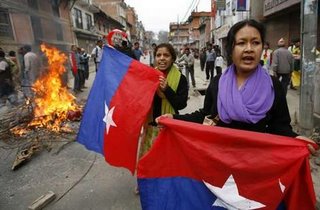
Español | Deutsche | Français | Italiano | Português| Ch| Jp| Ko
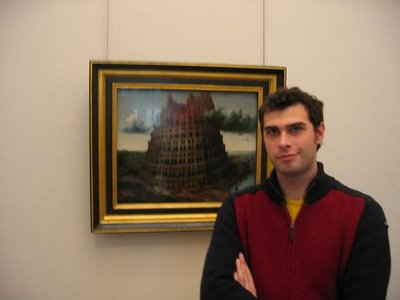






0 Comments: